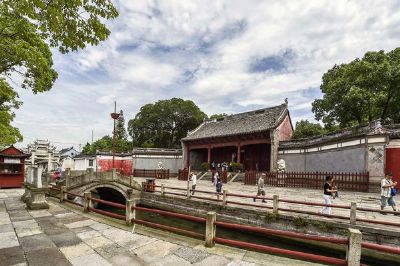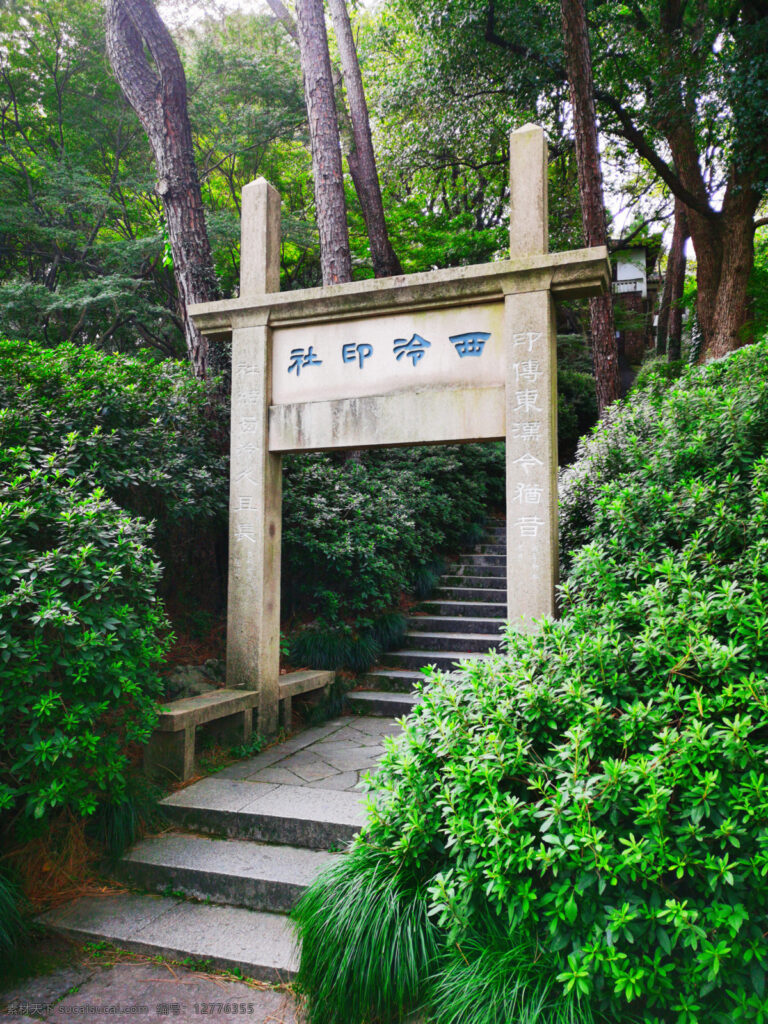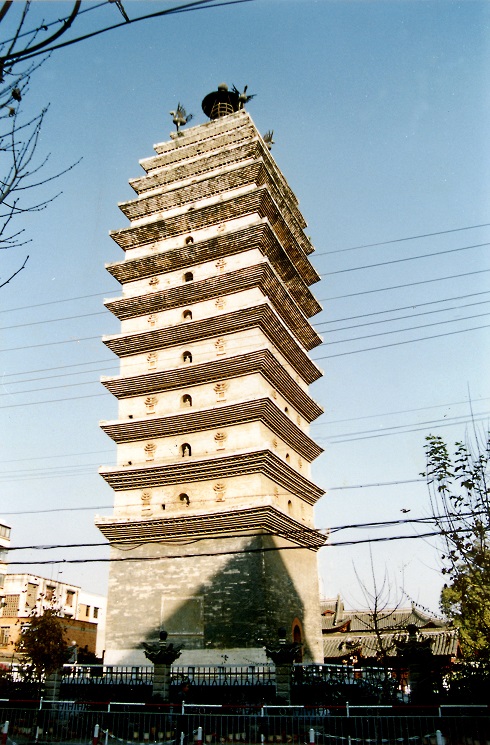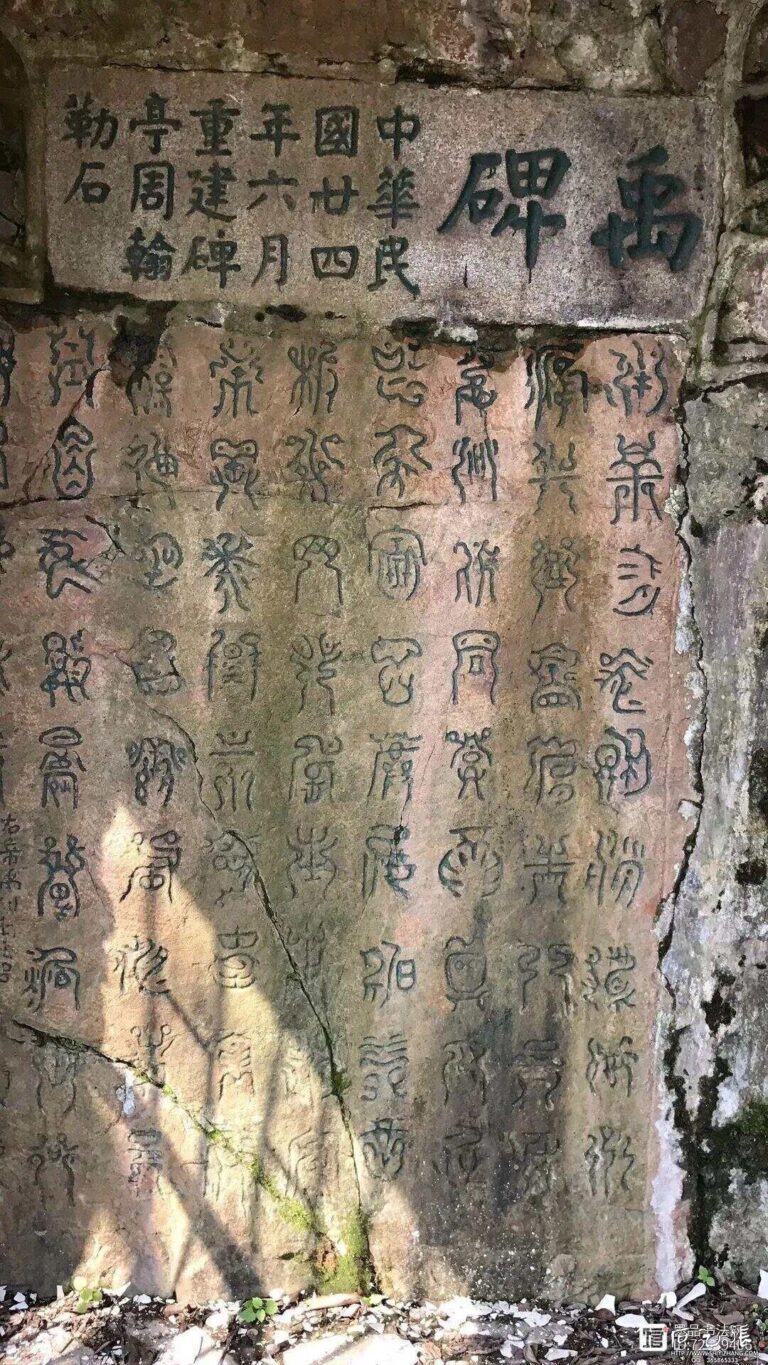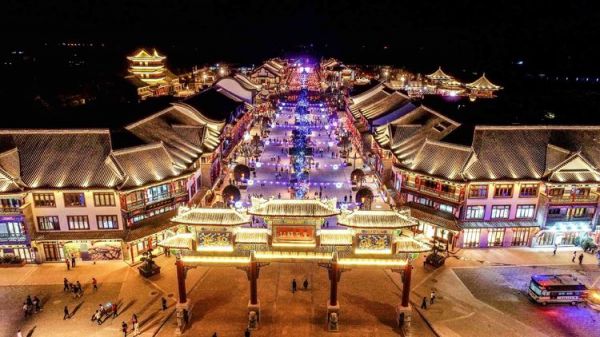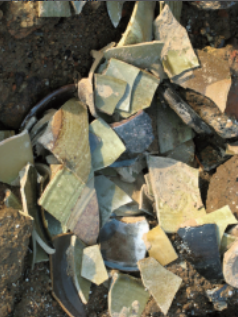Discover the Enchanting Yibin Zhenwushan Gujianzhuqun: A Hidden Gem in Sichuan
An Essential Guide to Visiting Yibin Zhenwushan Gujianzhuqun
In This Guide
- An Essential Guide to Visiting Yibin Zhenwushan Gujianzhuqun
- The Rich History of Yibin Zhenwushan Gujianzhuqun
- Main Highlights: What to See at Yibin Zhenwushan Gujianzhuqun
- Planning Your Visit: A Practical Guide
- Tickets, Hours, and Booking
- How to Get There
- Local Cuisine and Accommodation
- Frequently Asked Questions
- Final Thoughts on Your Trip
Nestled in the picturesque landscapes of Yibin, Sichuan Province, the Zhenwushan Ancient Architectural Complex stands as a testament to China’s rich cultural heritage. Dating back to the Ming Dynasty, specifically the Wanli era, this sprawling complex is a harmonious blend of Taoist, Buddhist, and Confucian influences, showcasing the intricate artistry and architectural prowess of its time.
Perched gracefully upon the slopes of Zhenwu Mountain, the buildings within this complex are not merely structures; they are vibrant echoes of historical narratives, imbued with spiritual significance. Visitors will find themselves enveloped in a serene atmosphere as they explore the majestic temples, each adorned with exquisite carvings and vibrant murals. The layout of the complex is thoughtfully designed, allowing for a harmonious interaction between nature and architecture, with pathways leading through lush greenery and along stone steps that have witnessed centuries of devotion.
Zhenwushan is not just a cultural relic but also a living monument that continues to attract pilgrims and tourists alike. Whether you’re drawn by the allure of spirituality, the quest for historical knowledge, or simply the desire to bask in the beauty of nature, this ancient site promises a profound and enriching experience. As you journey through its hallowed grounds, you will uncover stories of the past that are as compelling as the stunning vistas surrounding you.
The Rich History of Yibin Zhenwushan Gujianzhuqun
The Yibin Zhenwushan Ancient Architectural Complex, located in Sichuan Province, is a historical treasure that dates back to the Ming Dynasty, specifically the Wanli era (1573-1620). This impressive site primarily serves as a Taoist temple complex, embodying a harmonious blend of Taoism, Buddhism, and Confucianism. Its establishment was influenced by the region’s rich spiritual heritage, making it a significant cultural landmark in southern China.
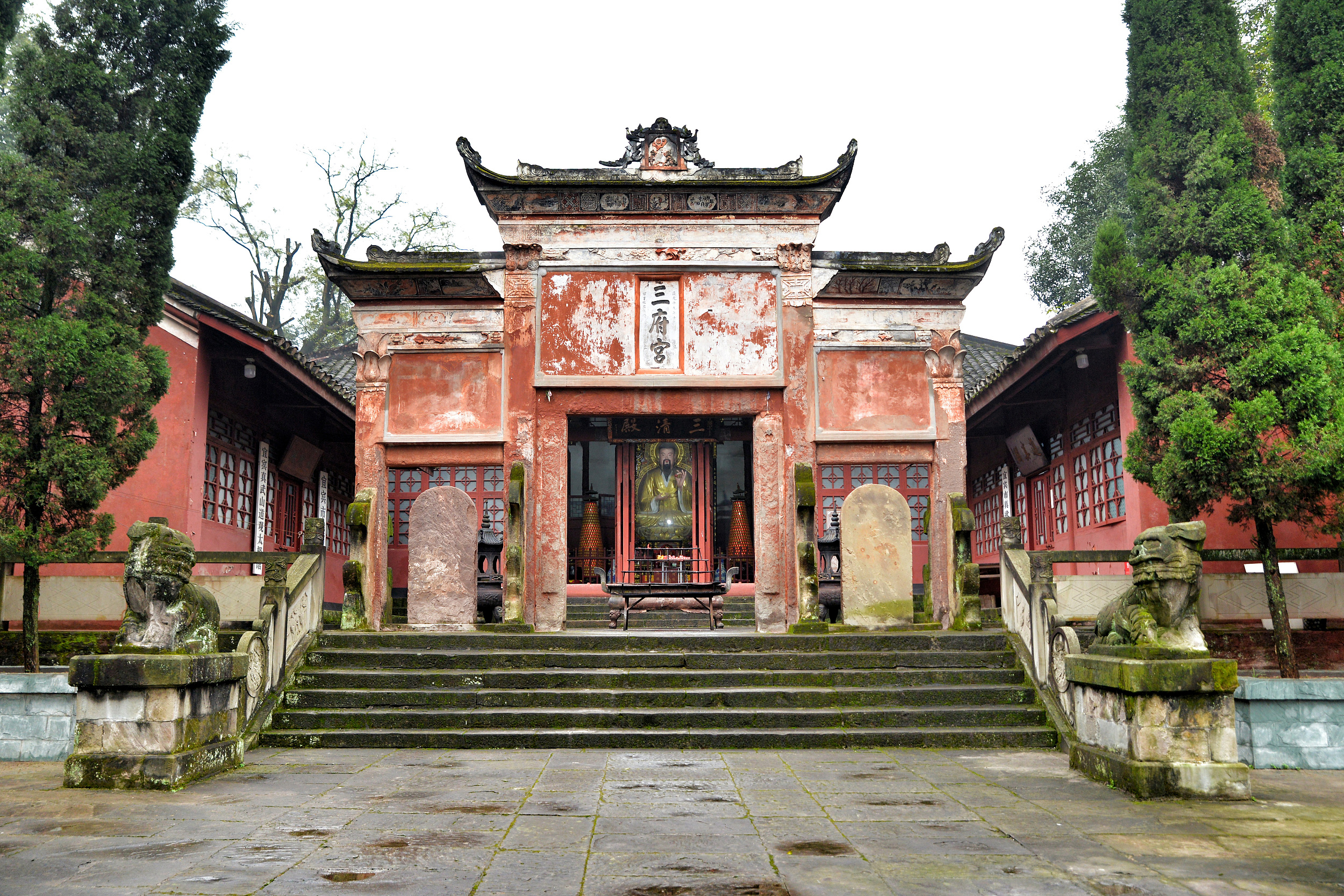
Yibin Zhenwushan Gujianzhuqun.
Nestled majestically against the backdrop of Zhenwu Mountain, the complex showcases a series of grand structures that cascade down the slopes, reflecting traditional Chinese architectural aesthetics. Among the prominent buildings within the complex is the Xuanzhu Hall, also known as the Yuanji Palace, which was commissioned in 1574 by then-Sichuan governor Zeng Shengwu. This hall was dedicated to the veneration of the Taoist deity Zhenwu, revered as the “True Martial Emperor.”
The architectural ensemble consists of several temples and halls, including the Doumu Palace, Sanfu Palace, and the Earth Mother Temple, among others. Each structure is uniquely designed yet collectively forms a coherent architectural narrative, aligned along a central axis that emphasizes the significance of the spiritual journey. Visitors can traverse the stone steps leading up to these halls, which were originally flanked by three grand stone gateways, known as the Three Heavenly Gates, that added to the majestic entrance of the complex.
Despite the passage of centuries and the ravages of time, many of the core buildings have been remarkably preserved. The Zhenwushan Ancient Architectural Complex has not only survived numerous natural and human-induced challenges but has also become a focal point for religious pilgrimage and cultural tourism, drawing visitors who seek to appreciate its historical and architectural grandeur.
In recognition of its cultural significance, the site has been designated as a national key cultural relic protection unit, ensuring that its historical value is maintained for future generations. Today, the Yibin Zhenwushan Ancient Architectural Complex stands as a testament to the rich spiritual heritage of the region, inviting exploration and contemplation within its serene and majestic surroundings.
Main Highlights: What to See at Yibin Zhenwushan Gujianzhuqun
Nestled in the picturesque landscape of Sichuan Province, the Yibin Zhenwushan Gujianzhuqun (真武山古建筑群), or Zhenwu Mountain Ancient Architectural Complex, is a treasure trove of history and culture, making it a must-visit destination for travelers. Established during the Ming Dynasty, this sprawling complex encompasses a rich blend of Taoist, Buddhist, and Confucian influences, reflecting the harmonious coexistence of these three philosophical traditions.
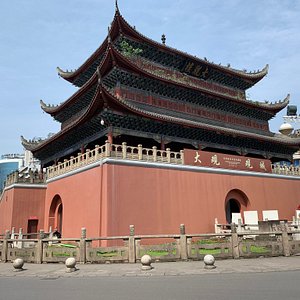
Yibin Zhenwushan Gujianzhuqun.
One of the most striking features of Zhenwu Mountain is its majestic architecture, which is skillfully integrated into the natural terrain. Visitors will be captivated by the grandeur of the temples, particularly the Xuan Zu Hall (玄祖殿), which serves as the main hall and is said to house a statue of the revered Zhenwu Emperor. This hall, along with others like the Dou Mu Palace (斗母宫) and San Fu Palace (三府宫), showcases intricate carvings and traditional Chinese architectural styles that have withstood the test of time.
The journey to the complex is equally rewarding. A stone staircase winds its way up the mountain, allowing visitors to experience the serene beauty of the surrounding landscape. As you ascend, you will encounter several majestic stone gateways, known as “Tian Men” (天门), which add to the mystical atmosphere of the site. The views from the mountain peak are breathtaking, offering panoramic vistas of the confluence of the Yangtze and Jialing Rivers below.
For those interested in spiritual exploration, the site is renowned as a significant Taoist holy ground, often referred to as the “North Qingcheng, South Zhenwu.” The tranquil environment and the presence of ancient relics provide an ideal setting for reflection and meditation.
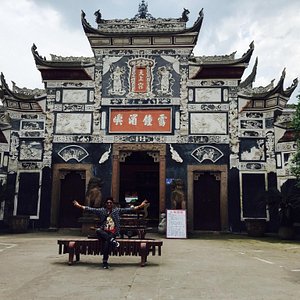
Yibin Zhenwushan Gujianzhuqun.
Plan to spend at least a couple of hours at Zhenwu Mountain to fully appreciate its historical and cultural significance. Whether you’re an avid history buff, a spiritual seeker, or simply looking to enjoy the natural beauty of Sichuan, the Zhenwu Mountain Ancient Architectural Complex promises an enriching experience that will linger in your memory long after your visit.
Planning Your Visit: A Practical Guide
Visiting the Yibin Zhenwushan Ancient Architecture Group offers a unique glimpse into China’s rich cultural heritage, particularly its blend of Taoist, Buddhist, and Confucian traditions. This practical guide will help you navigate your visit, ensuring you make the most of your experience at this historical site.
Location and Access
The Zhenwushan Ancient Architecture Group is situated in the northwest of Yibin City, Sichuan Province. You can easily reach the site by public transportation or taxi from central Yibin. The site is positioned at the foothills of Zhenwu Mountain, providing a scenic backdrop that enhances its historical significance.
Opening Hours
The site typically operates from 8:00 AM to 5:30 PM daily. However, it’s advisable to check the exact opening times before your visit as they may vary, especially during public holidays or special events.
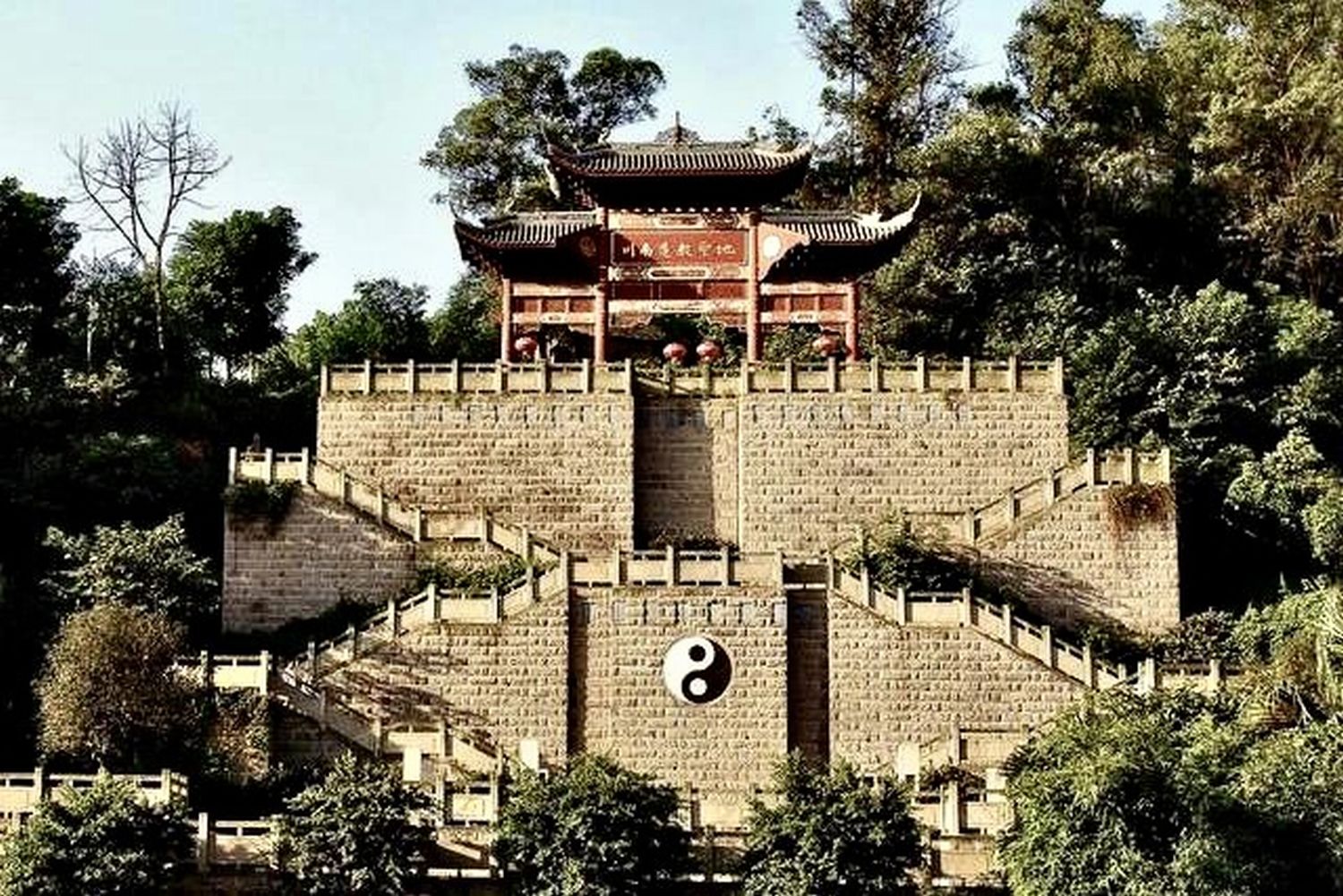
Yibin Zhenwushan Gujianzhuqun.
Admission Fees
Entry fees for the Zhenwushan Ancient Architecture Group are generally reasonable, making it accessible to a wide range of visitors. While specific prices may change, expect to pay around 24-100 CNY depending on age and status (e.g., discounts for children, students, and seniors). It is recommended to purchase tickets in advance, especially during peak tourist seasons.
Recommended Duration
Allocate approximately 1 to 2 hours for your visit. This timeframe allows you to explore the main architectural highlights and enjoy the serene atmosphere of the surrounding natural landscape.
What to See
The architectural ensemble, dating back to the Ming Dynasty, is predominantly composed of Taoist temples, showcasing intricate designs and historical significance. Key structures to admire include:
- Xuanzu Hall (玄祖殿): The main hall dedicated to the deity, offering stunning views and cultural insights.
- Three Pavilions: Each with unique architectural styles and historical backstories.
- Stone Arches: Beautifully crafted features that add to the aesthetic appeal of the site.
Take your time to appreciate the craftsmanship and the spiritual ambiance that permeates the area.
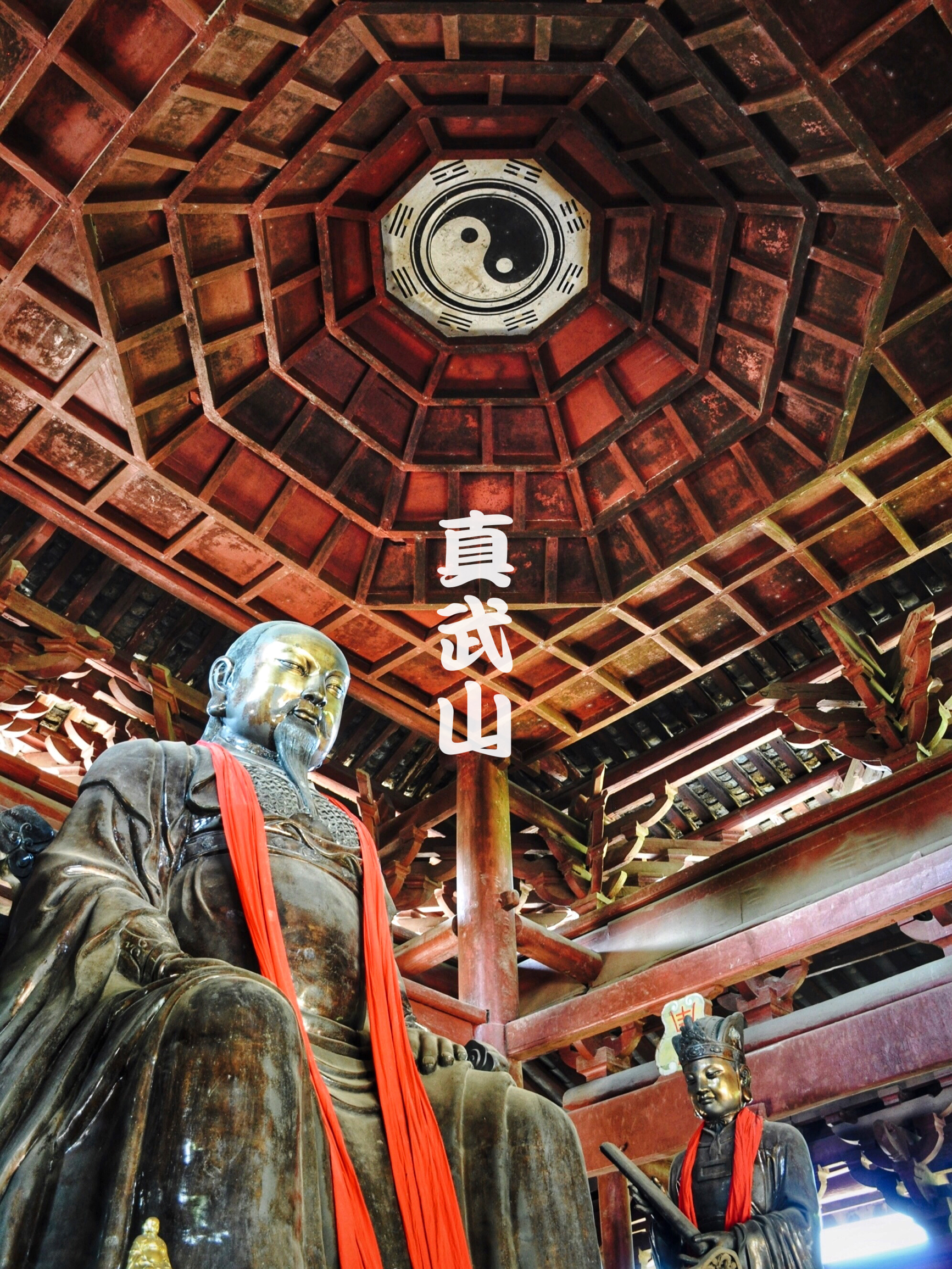
Yibin Zhenwushan Gujianzhuqun.
Tips for Visiting
- Wear Comfortable Shoes: The site involves some walking, and the terrain can be uneven in parts. Comfortable footwear will enhance your experience.
- Bring Water and Snacks: While there may be limited refreshments available, having your own supplies can keep you energized during your exploration.
- Photography: Capture the beauty of the ancient architecture and the surrounding nature, but be respectful of the sacred spaces.
- Respect Local Customs: As a site of cultural and religious importance, maintain a respectful demeanor, especially within the temples.
Nearby Attractions
After visiting the Zhenwushan Ancient Architecture Group, consider exploring other nearby attractions:
- Zhenwu Mountain City Forest Park: A beautiful area for hiking and enjoying panoramic views of the city and surrounding landscapes.
- Liangshan Scenic Area: Known for its natural beauty and cultural significance, it’s a great spot for a leisurely stroll or picnic.
- The Yibin Three Rivers Cruise: Enjoy a scenic boat ride on the rivers that converge in Yibin, offering a different perspective of the city.
Conclusion
A visit to the Yibin Zhenwushan Ancient Architecture Group is not just a journey through history; it’s an immersion into the spiritual and cultural tapestry of China. With this practical guide, you are equipped to explore this fascinating site, ensuring a memorable experience that connects you with the rich heritage of the region.
Tickets, Hours, and Booking
When planning your visit to the Yibin Zhenwushan Ancient Architectural Complex, it’s essential to be informed about the ticketing options and operational hours.
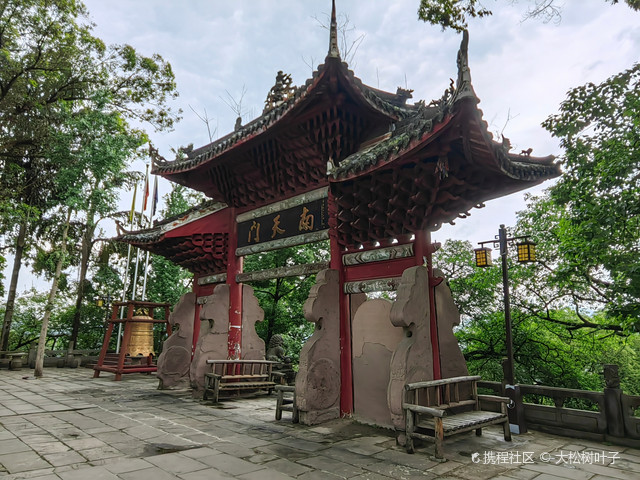
Yibin Zhenwushan Gujianzhuqun.
Ticket Information
General Admission:
– Price: Approximately 100 CNY per person, though prices may vary seasonally or for special events.
– Discounted Tickets: Reduced rates are often available for children, students, and seniors. It’s advisable to check for specific discount policies on the official website or at the ticket counter.
Booking Options:
– Tickets can be purchased on-site, but for convenience, advance booking through travel platforms or local tour agencies is recommended, especially during peak travel seasons.
– Some platforms may offer bundled tickets that include other attractions in the Yibin area, which can provide additional savings.
Operational Hours:
– The complex typically opens from 8:00 AM to 5:30 PM daily. However, it is advisable to confirm the hours before your visit, as they may change due to holidays or special events.
Visitor Experience
Plan to spend about 1 to 2 hours exploring the site. The ancient architectural complex, which showcases a harmonious blend of Daoist, Buddhist, and Confucian traditions, is built along the mountainside, offering not only historical insight but also stunning views of the surrounding landscape.
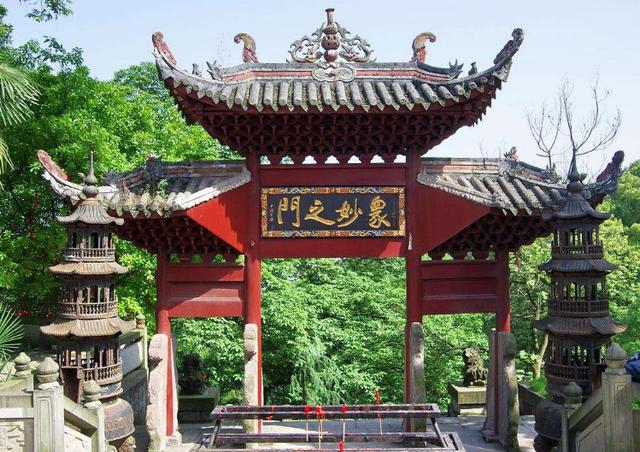
Yibin Zhenwushan Gujianzhuqun.
Additional Tips
- Accessibility: The path leading to the main structures consists of stone steps, making comfortable footwear advisable.
- Guided Tours: Consider joining a guided tour for a more in-depth understanding of the site’s rich history and cultural significance.
By being well-prepared with this ticketing information, your visit to the Yibin Zhenwushan Ancient Architectural Complex can be both enjoyable and enriching.
How to Get There
Getting to Yibin Zhenwushan Gujianzhuqun is relatively straightforward, thanks to its strategic location in Yibin, Sichuan Province, a region well-connected by various modes of transportation.
By Air
The nearest airport is Yibin Caiba Airport (YBP), located approximately 15 kilometers from the city center. This airport serves domestic flights, mainly connecting to major cities such as Chengdu and Beijing. From the airport, you can take a taxi or a shuttle bus to reach downtown Yibin, which serves as your base for visiting Zhenwushan Gujianzhuqun.
By Train
Yibin is also accessible by train, with the Yibin Railway Station offering services to and from several key locations in Sichuan. High-speed trains from Chengdu to Yibin take about two hours, making it a convenient option for those already in the province. Once you arrive at the train station, local taxis or city buses can take you to the Zhenwushan area.

Yibin Zhenwushan Gujianzhuqun.
By Bus
For travelers coming from nearby cities, long-distance buses are available. The Yibin Long-distance Bus Station has services connecting with major cities like Chengdu, Leshan, and Zigong. The bus journey can vary in duration depending on traffic and distance, so it’s advisable to check the schedule in advance. Upon arrival in Yibin, you can use local taxis or public transport to reach your destination.
Local Transportation
Once in Yibin, getting to Zhenwushan Gujianzhuqun is quite easy. Taxis are widely available and relatively inexpensive; they provide a convenient way to travel directly to the site. Alternatively, you can use local buses that connect various parts of the city. Be sure to check the schedules and routes, as they can change. If you prefer a more immersive experience, consider renting a bicycle or even a scooter to explore the scenic routes leading to the ancient architecture.
Accessibility
The site itself is built on a hillside, so be prepared for some walking and climbing. There are stone steps leading from the base to the top, allowing visitors to fully appreciate the stunning views and the intricate architecture along the way. Comfortable walking shoes are highly recommended.
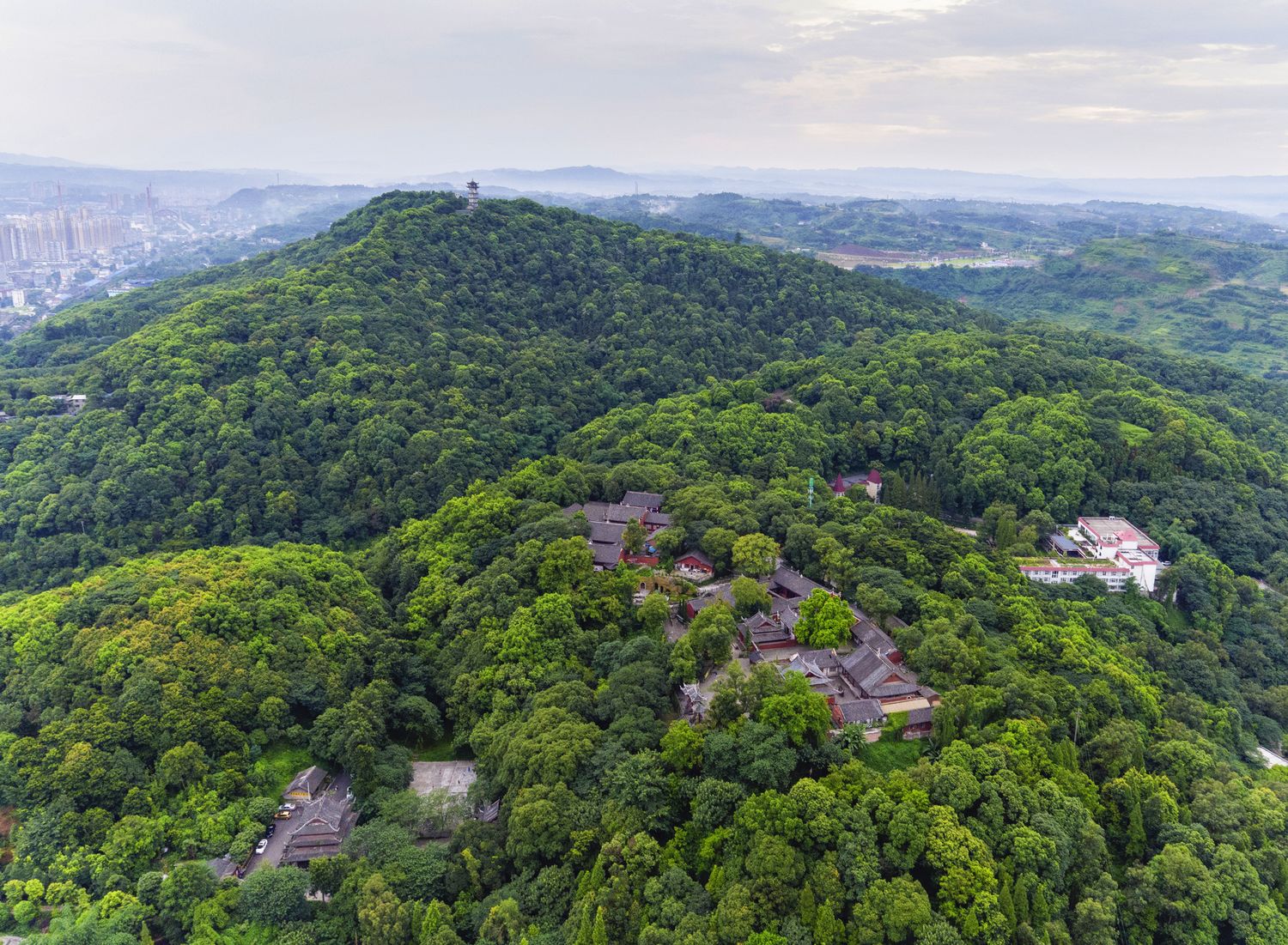
Yibin Zhenwushan Gujianzhuqun.
By planning your transportation in advance, you can ensure a smooth and enjoyable visit to Yibin Zhenwushan Gujianzhuqun, a remarkable site steeped in history and culture.
Local Cuisine and Accommodation
While exploring the stunning Zhenwushan Ancient Architecture Complex in Yibin, you’ll want to indulge in the local culinary delights and find comfortable accommodations to rest after your adventures. Here’s a guide to some of the best dining and lodging options nearby.
Dining Recommendations
- Yibin Burning Noodles (宜宾燃面)
- Cuisine: Sichuan
- Address: Approximately 1 km from Zhenwushan.
-
Overview: Famous for its spicy and flavorful noodles, this eatery is a must-visit for those looking to experience authentic Sichuan cuisine. The dish is served with a variety of toppings, making it a popular choice among locals and tourists alike.
-
Lin He Xuan (林和轩)
- Cuisine: Hot Pot
- Address: About 3.3 km from the ancient complex.
-
Overview: This hot pot restaurant offers a cozy atmosphere and a wide selection of fresh ingredients. Diners can customize their meals with various broths and sauces, perfect for those wanting a hearty meal after a day of exploration.
-
Tongzi Claypot (桐子砂锅)
- Cuisine: Chinese
- Address: Roughly 0.9 km away.
-
Overview: Known for its claypot dishes that retain moisture and flavor, this restaurant serves up comforting meals that highlight local ingredients. The cozy setting makes it an ideal place to relax and enjoy a warm meal.
-
Three Sisters Spicy Dishes (三妹小炒)
- Cuisine: Sichuan
- Address: Approximately 3.6 km from the complex.
- Overview: For those craving something quick and satisfying, this casual eatery specializes in quick-fried dishes that pack a punch. The vibrant flavors and casual dining experience make it a favorite spot for a fast but delicious meal.
Accommodation Suggestions
- Yibin Shunan Bamboo Sea Resort (宜宾蜀南竹海情缘饭店)
- Rating: 4.5/5
-
Overview: Nestled near the picturesque Shunan Bamboo Sea, this resort offers a tranquil retreat with modern amenities. Guests can enjoy comfortable rooms, beautiful views of the bamboo forests, and easy access to local attractions.
-
Yibin Grand Hotel (宜宾大酒店)
- Rating: 4.0/5
-
Overview: Located close to the city center, this hotel provides a range of services, including spacious rooms, a restaurant, and meeting facilities. It’s an excellent choice for both leisure and business travelers.
-
Q+ Yibin Moonlight Peninsula City Boutique Hotel (Q+宜宾月亮半岛城市精品酒店)
- Rating: 4.2/5
-
Overview: This boutique hotel offers a stylish and comfortable stay with modern decor. It’s conveniently located near shopping and dining options, making it easy for guests to explore the area.
-
Jin Jiang Inn (锦江之星)
- Rating: 4.0/5
- Overview: A reliable budget option that doesn’t compromise on comfort. With clean rooms and basic amenities, this hotel is perfect for travelers looking for affordable lodging without sacrificing quality.
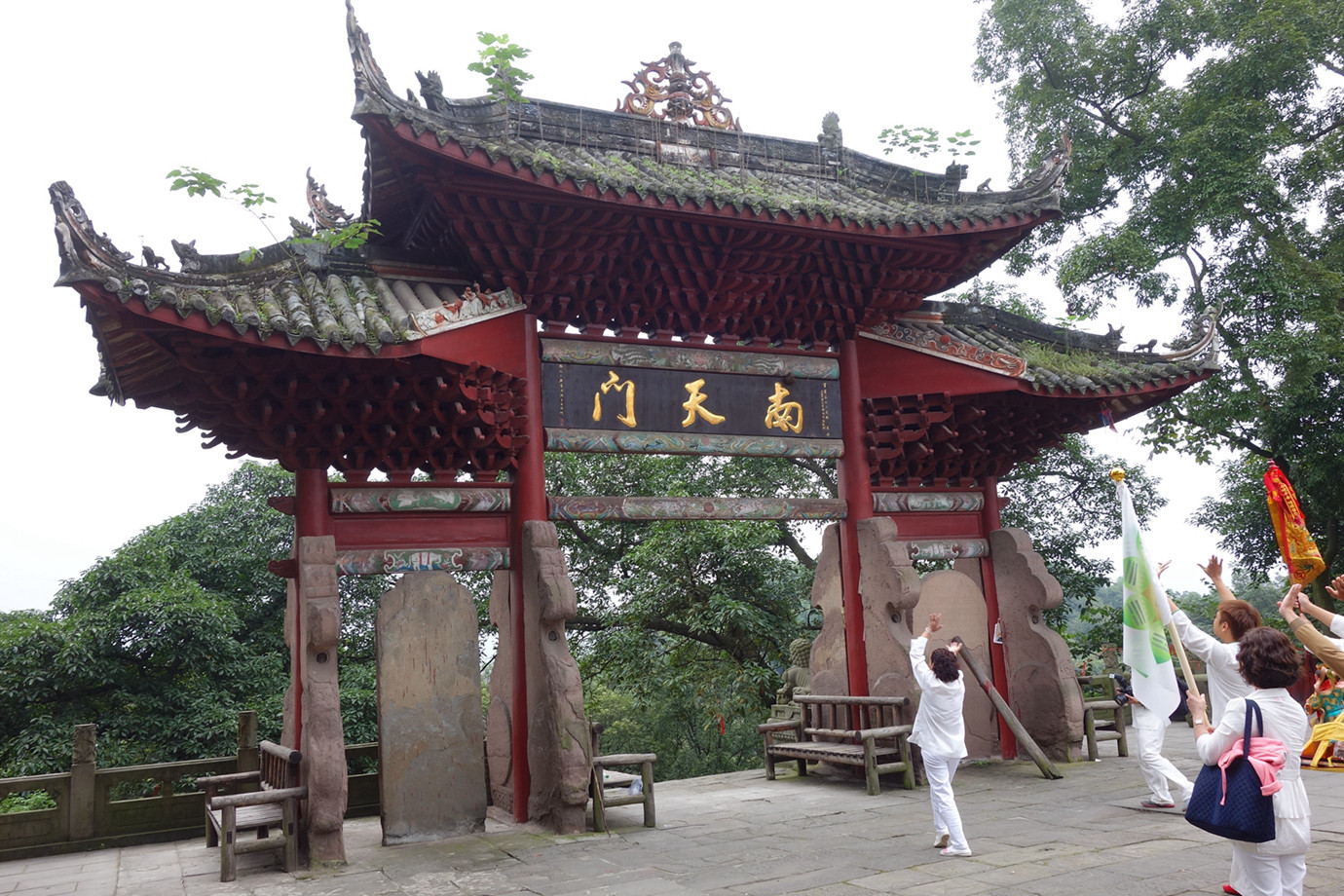
Yibin Zhenwushan Gujianzhuqun.
Conclusion
Yibin’s Zhenwushan Ancient Architecture Complex isn’t just a feast for the eyes; it also offers delightful culinary experiences and comfortable accommodations. Whether you’re in the mood for spicy noodles or a cozy hot pot, and whether you prefer luxury or budget-friendly lodgings, Yibin has something to suit every traveler’s needs. Enjoy your time in this beautiful region of Sichuan!
Frequently Asked Questions
-
What is the history of the Zhenwu Mountain Ancient Buildings Group?
The Zhenwu Mountain Ancient Buildings Group, located in Yibin, Sichuan Province, was established during the Ming Dynasty (specifically in the Wanli era) and primarily serves as a Taoist temple complex. It encapsulates the cultures of Taoism, Buddhism, and Confucianism, showcasing a magnificent architectural style that harmonizes with the surrounding mountains. -
How much time should I allocate for visiting the site?
It is recommended to spend about 1 to 2 hours exploring the Zhenwu Mountain Ancient Buildings Group to fully appreciate its historical and cultural significance, as well as the stunning architecture. -
What are the opening hours for the Zhenwu Mountain Ancient Buildings Group?
The site typically operates from 8:00 AM to 5:30 PM daily. However, it’s advisable to check with the site directly for any changes in operating hours, especially during public holidays. -
Is there an entrance fee?
Yes, there is an entrance fee to access the Zhenwu Mountain Ancient Buildings Group. The exact price can vary, so it’s best to confirm the current rates prior to your visit. -
What are the main attractions within the ancient buildings complex?
Key attractions include the Xuanzang Hall (also known as the Yuanji Palace), the Master of Heaven Hall, and several other temples that reflect the intricate architectural styles and spiritual significance of the site. -
Are there facilities for visitors at the Zhenwu Mountain Ancient Buildings Group?
Basic visitor facilities are available, including rest areas and information centers. However, amenities may be limited, so it’s advisable to bring your own refreshments and necessary items for comfort. -
How do I reach the Zhenwu Mountain Ancient Buildings Group?
The site is located in the northwest of Yibin city. It can be accessed by car, taxi, or local public transport. Detailed directions can be found on various travel apps or local maps. -
What should I keep in mind when visiting?
Visitors should wear comfortable shoes suitable for walking, as the terrain can be uneven. Additionally, respect for the cultural and religious significance of the site is vital; avoid loud noises and be mindful of other visitors.
Final Thoughts on Your Trip
Visiting the Yibin Zhenwushan Ancient Architecture Complex is more than just a journey through stunning landscapes and historical sites; it’s an immersive experience that engages the senses and enriches the soul. This remarkable site, rooted in the rich traditions of Taoism, Buddhism, and Confucianism, showcases the architectural brilliance of the Ming Dynasty while offering a serene retreat from the bustling modern world.
As you explore the winding paths and majestic temples, take a moment to reflect on the spiritual significance of this sacred space. The harmony of nature and architecture invites you to pause, breathe, and appreciate the profound connection between the past and the present. Whether you’re drawn by the allure of ancient wisdom, the call of nature, or the beauty of traditional Chinese architecture, Zhenwushan promises to leave a lasting impression.
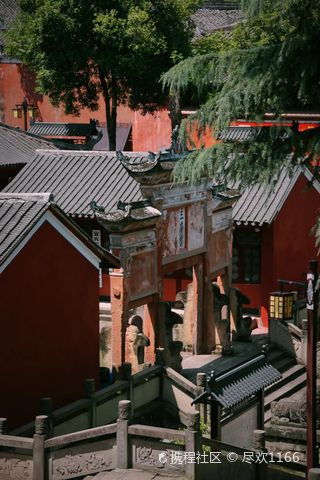
Yibin Zhenwushan Gujianzhuqun.
Incorporate this destination into your travel plans, and allow the tranquil ambiance and rich cultural heritage of Yibin to inspire you. Discover the stories held within its walls, and let the spirit of Zhenwushan guide you on a journey of personal reflection and exploration.
